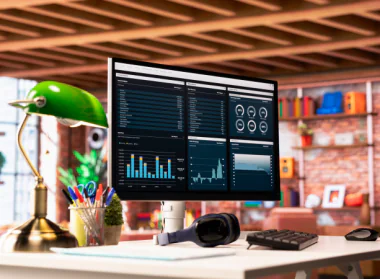Being a procurement manager is more difficult than many people think. Whether you’re in charge of procurement for a small business or international conglomerate, the job is demanding and nuanced.
What is a Procurement Manager?
A procurement manager is someone who is responsible for sourcing all the products and services for an organization. You may sometimes hear the role referred to as a purchasing manager.
In large organizations, the procurement manager serves as a team leader for all purchasing agents and specialists. Typically, the role reports to a chief procurement officer (CPO). But in small and medium-sized businesses, the procurement manager may be the only person in the department.
In this situation, they typically report to the chief operations officer (COO), or the chief finance officer (CFO). Regardless of company size, procurement teams have to work closely with operations, legal, and finance departments.
Educational Requirements
To land a job as a procurement manager, you’ll almost always be expected to hold a Bachelor’s degree, at a minimum, though some organizations may require you to have a Master’s degree.
You’ll also need demonstrated experience with purchasing management, project management, risk management, and procurement strategies. Smaller organizations may be willing to forego this requirement if you have the necessary skills and experience to excel in the position.
The degree should be in one of the following fields:
- Finance
- Supply chain management
- Business Administration
- Other related field
There are other certifications that may help you stand out against other applicants who may be cruising the job boards to find a position, such as:
- Certified Purchasing Professional (CPP) offered by the American Purchasing Society
- Certified Supply Chain Professional (CSCP) offered by the American Production and Inventory Control Society (APICS)
- Senior Professional in Supply Chain Management (SPSM) offered by the Next Level Purchasing Association.
- Certified Public Purchasing Officer (CPPO) offered by the Universal Public Procurement Certification Council (UPPCC).
- Certified Professional Public Buyer (CPPB) offered by the UPPCC.
These certifications are only valid for a limited amount of time and need to be renewed with continuing education and exams. You can receive training through organizations like the National Association of State Procurement Officials (NASPO) and the National Institute of Government Purchasing (NIGP).
Procurement Manager Responsibilities
As a procurement manager, you are responsible for ensuring that your business purchases any goods and services that are required to achieve goals. This means finding vendors and suppliers partners that balance between cost and quality.
Procurement managers may also review past purchases and conduct evaluations to determine vendor Effectiveness, compliance, and the business’ return on investment.
Procurement manager job duties and responsibilities include:
- Product and solution research
- Procurement process optimization
- Inventory management
- RFP management
- Vendor evaluation and selection throughout all areas of the supply chain
- Supply chain management
- Contract negotiation and management
- ROI analysis
- Risk and compliance management
- Data analysis
When choosing suppliers, procurement managers must consider things like:
- Pricing
- Quality
- Products features and functionality
- Delivery timeline including lead time and shipping costs
- Experience and expertise
- Company values – do they meet your own? If you’re going for sustainability and your vendor isn’t, then you may want to find someone else to work with
- Customer experience – are other businesses that have partnered with this supplier having a good experience
- Ability to scale – can this vendor continue to support you as your business grows?
The best procurement managers are flexible and open minded.
Key Skills for Success
Not just anyone can be a good procurement manager. There are certain skills you need to excel in if you want to be successful.
While many of these skills can be learned, natural talent and interest will go a long way.
Of course, you need basic management skills, but you’ll have to have years of experience in a procurement function, too.
Relationship Management
Solid relationships are the foundation of effective procurement. It goes beyond working with suppliers and customers to build stronger relationships, but also working to build those relationships with your coworkers, too.
You need your procurement function to work seamlessly so that you can meet your organization’s needs, alongside the needs of your colleagues.
Strong business relationships are built on mutual respect as much as they are personal connections. This means you need to work to manage your expectations and work transparently so that you can always deliver what you say you will when you say you will.
A major part of relationship-building is strong communication skills. You must be able to communicate clearly and effectively, with both the written and spoken word.
Time Management
Good time management is an essential part of procurement because there are so many different things to keep track of at any given point in time. If you lack the ability to properly plan your day, prioritize your tasks, and dedicate the appropriate amount of time to each, you may find yourself struggling to get everything done.
Delivering procurement on a time scale that works for your business is crucial to reducing downtime and avoiding productivity barriers. In today’s digital environment, the support of e-procurement management software like PLANERGY helps you reduce turnarounds and time loss in your organization. However, it’s still up to you to manage those timelines.
Ensuring that tenders are completed in the correct amount of time, that purchase requisitions and purchase orders move smoothly through the approval workflow and that your expectations are given in met is an important skill to make sure that the procurement function delivers the best possible result for your business.
Strategic Thinking
What does it mean to think strategically? Do you have the ability to analyze beyond the everyday to make sure you’re keeping current with potential shocks or future demand, you’re thinking strategically.
Ideally, you are able to keep up-to-date on any supply market shifts, changes in demand in the future, and how these changes might impact your business. This helps your company stay competitive in a dynamic marketplace.
Part of strategic thinking is the need to develop and encourage cultural intelligence. You have the ability to operate within diverse business environments and numerous cultural contexts, and will not only be able to build relationships with your International partners but that method of thought will encourage Innovation and flexibility for change.
Strong Negotiation Skills
Negotiations are a huge part of procurement. You may find yourself dealing with multiple bids from suppliers. Without negotiating with each vendor, you will never know if you got the best possible price and terms.
Negotiation isn’t just about getting what you need to reach your goals. It’s also about understanding and exploring the needs of the other party in any discussion.
This is why good for your event managers can read people and recognize when it’s time to make a compromise. Each negotiation is unique so your ability to be flexible plays a vital role in being successful.
Not Afraid of Making Changes
The best procurement managers aren’t afraid of change. To be effective at your job, you have to be able to spot cost reduction opportunities.
This supports a stronger and more sustainable company environment for your business.
And as new opportunities show themselves, you have to be able to embrace making those changes so that you can get the best possible outcome.
In today’s environment, that could be something as simple as changing to more energy-efficient lighting, to adopting a new e-procurement system like PLANERGY.
It’s not just technology that is rapidly changing. It’s global trade systems and regulations, too. Everything impacting businesses around the world is interconnected.
By keeping an open mind about change and remaining optimistic about what it has to offer, you’ll be better able to excel as a procurement manager.




